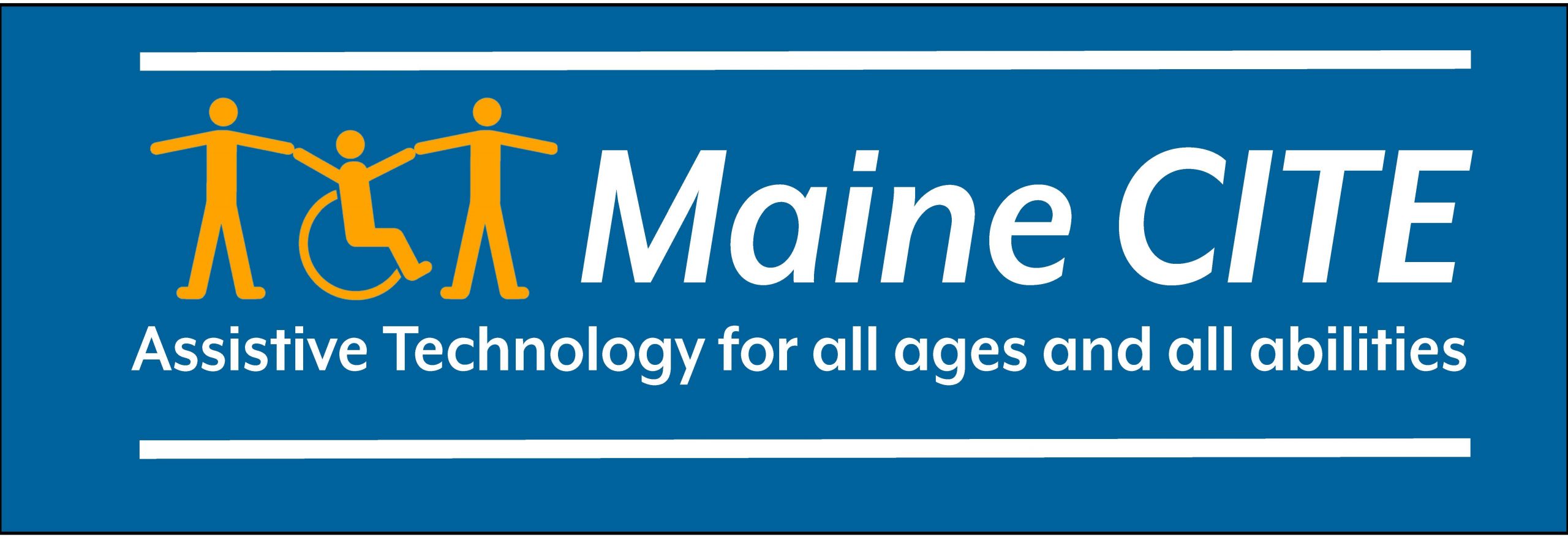Links: Advocacy
ALDA-Maine for Deafened & Hard of Hearing People with Hearing Loss
ALDA-Maine, is the official Chapter of an established national Association called ALDA. ALDA stands for “association for late deafened adults.” Late deafened is a confusing term for many. ALDA-Maine, the first Chapter in Maine, is the only volunteer association of its kind providing information, support, friendship, advocacy, and role models for people with acquired hearing needs. Contact Person: Lauren Storck, Email:aldamaine@gmail.com
Brain Injury Association of America – Maine Chapter
The Brain Injury Association of America – Maine Chapter is a partnership of organizations working together to share information, provide education, and promote promising practices that will benefit individuals with brain injuries and their families. This organization also may be reached through their Facebook page…
Center for Community Inclusion and Disabilities Studies
The Center for Community Inclusion and Disability Studies is Maine’s University Center for Excellence in Developmental Disabilities. CCIDS was established at UMaine in 1992 to bring together the resources of the community and the university to enhance the quality of life for individuals with disabilities and their families in Maine and beyond.
Client Assistance Program
The Client Assistance Program (CAP) is a federally funded program that provides information, assistance, and advocacy to people with disabilities who are applying for or receiving services under the Rehabilitation Act.
Consortium for Citizens with Disabilities (CCD)
CCD is a working coalition of more than 100 national consumer, advocacy, provider, and professional organizations working together with and on behalf of the 54 million children and adults with disabilities and their families living in the United States. The CCD has several task forces on various disability issues, such as Employment and Training, Developmental Disabilities,Health, Social Security, Long-Term Services and Supports, Telecommunications and Technology, and Rights, etc.
Disability Rights Maine
Disability Rights Maine provides advocacy services to Maine citizens with disabilities who need help with a problem related to their disability. DRM Provides the Following Services: Information and Referral; Individual Advocacy; Legal Representation; Legislative Advocacy; Education and Training; and Assistance with Self-Advocacy. DRM welcomes calls from people with disabilities inquiring about their legal rights.
Hearing Loss Association of America (HLAA)
The HLAA is the nation’s foremost consumer organization representing people with hearing loss. HLAA impacts accessibility, public policy, research, public awareness, and service delivery related to hearing loss on a national and global level. HLAA’s national support network includes an office in the Washington D.C. area, 14 state organizations, and 200 local chapters. The HLAA mission is to open the world of communication to people with hearing loss through information, education, advocacy, and support.
Institute on Disabilities at Temple University
The Institute on Disabilities at Temple University is one of the sixty-seven University Centers for Excellence in Developmental Disabilities Education, Research and Service funded by the Administration on Developmental Disabilities, U.S. Department of Health and Human Services.
Institute for Human Centered Design
A non-profit organization founded in 1978 to address the environmental issues that confront people with disabilities and elderly people. Adaptive Environments promotes accessibility as well as universal design through education programs, technical assistance, training, consulting, publications and design advocacy. Its mission is to promote, facilitate, and advocate for international adoption of policies and designs that enable every individual, regardless of disability or age, to participate fully in all aspects of society.
Maine CITE Partners Page
Includes organizations that provide assistance to Maine citizens.
Maine Parent Federation
Provides information, advocacy, education, and training to families of children with disabilities. MPF promotes individual aspirations and community inclusion for children with disabilities.
Maine State Rehabilitation Council
The Maine State Rehabilitation Council (SRC) is a statewide citizens group created to advise the Division of Vocational Rehabilitation (DVR) in Maine about how well its programs and services match the needs of people with disabilities.
Maine Statewide Independent Living Council (SILC)
The State-wide Independent Living Council is dedicated to ensuring that citizens with disabilities have control over their lives and environments, and equal access to options, opportunities and choices as do all citizens.
Options for Independent Living
Options for Independent Living is a non-profit organization committed to empowering people with disabilities to lead independent and productive lives in their community through advocacy, the provision of information, education, technology and related services. This page links to a site showcasing a universally designed home.
State Rehabilitation Council (SRC) Division for the Blind and Visually Impaired (DBVI)
The mission of the State Rehabilitation Council (SRC) Division for the Blind and Visually Impaired (DBVI) is to provide leadership and diversity of viewpoints in partnership with the Division for the Blind and Visually Impaired to develop and evaluate programs and services; to identify priorities that help create opportunities, increase independence, and broaden access to the workplace for citizens of all ages who are blind or visually impaired
TDI (formerly Telecommunications for the Deaf, Inc.)
TDI was established in 1968 originally to promote further distribution of TTYs in the deaf community and to publish an annual national directory of TTY numbers. Today, it is an active national advocacy organization focusing its energies and resources to address equal access issues in telecommunications and media for four constituencies in deafness and hearing loss, specifically people who are deaf, hard-of-hearing, late-deafened, or deaf-blind.
Reviewed and revised: 07/28/2020 sl
